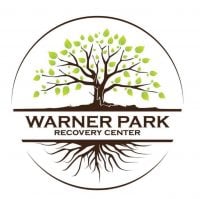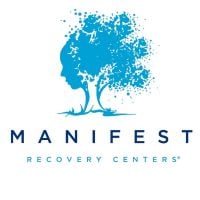California Diversion Programs
Drug Rehab Center in Los Angeles, California
- Substance Abuse
- Opioid Addiction
- Dual Diagnosis
- Alcoholism
California Diversion Programs is a Los Angeles-based addiction treatment facility that offers evidence-based, integrated treatments for alcoholism, substance abuse, opioid addiction, and dual diagnosis, with outpatient services, aftercare support, specialized levels of care, and a philosophy of treating the "whole person" to help individuals achieve long-term sobriety.
About California Diversion Programs in California
California Diversion Programs is an alcoholism, substance abuse, opioid addiction, and dual diagnosis treatment facility located in Los Angeles, CA. This facility offers a range of services for individuals looking to overcome their addiction and start their journey to sobriety. With outpatient and aftercare support options available, California Diversion Programs provides flexible treatment options to cater to the needs of each individual. Whether someone is struggling with alcoholism, substance abuse, opioid addiction, or a dual diagnosis, this facility offers the necessary support and resources to help clients on their path to recovery.
California Diversion Programs is dedicated to providing quality care and support for individuals suffering from addiction and substance abuse. Through their outpatient treatment programs, clients can receive comprehensive treatment while maintaining their daily responsibilities. The facility also offers aftercare support, ensuring that clients have ongoing support and guidance even after completion of their initial treatment. With a focus on dual diagnosis, California Diversion Programs has specialized treatment methods to address co-occurring mental health issues that often accompany addiction. By providing a range of services and personalized care, this facility aims to help individuals overcome their struggles and establish a foundation for a healthier and substance-free life.
Genders
Ages
Modality
Additional
Conditions and Issues Treated
A combination of treatments is often needed to treat drug abuse. Some addictions can be treated with counseling and support groups. In other cases, drug abuse can lead to a medical problem and require medical treatment. Treatment for drug addiction typically combines counseling and psychotherapy with medication and behavioral therapies.
A combination of treatments is often needed to treat drug abuse issues effectively. In the case of drug abuse, there is no easy answer or one-size-fits-all cure.
Opioid addiction has become a significant health problem in the United States. In 2015, there were 91 opioid overdose-related deaths per day, with a substantial increase in mortality rate in 2014.
When opioid addiction has reached a point where a person’s life becomes unmanageable, treatment options are available to help them get sober. Treatment that includes medical care with medications and counseling can help a user transition into sobriety.
When someone in struggles with both addiction and mental or emotional illness, this is considered a dual diagnosis. Dual diagnosis treatment can include therapy for these issues to happen simultaneously, which will allow either of them to be treated effectively.
Sometimes people who have suffered from addiction disorder also suffer from co-occurring disorders such as depression, anxiety, bipolar disorder, etc., making them “dual diagnoses.” Dual diagnoses require specialized treatment programs where drug and alcohol addiction are addressed along with psychiatric illnesses. Some rehabilitation facilities provide patients suffering from cooccurrences a program with highly integrated services and a clean environment with few distractions to help them succeed.
Levels of Care Offered
This center offers a variety of custom treatment tailored to individual recovery. Currently available are Aftercare Support, Dual-Diagnosis, Outpatient, with additional therapies available as listed below.
Outpatient treatment is often used for drug addicts in drug rehab. Outpatient treatment consists of counseling and therapy sessions. This form of treatment is also called ‘day-treatment’. The outpatient treatment process begins with the addict’s initial detox period, lasting about ten days.
Outpatient treatment is used for those who are at moderate risk for ‘slipping back’ into the addiction, for those who:
- Are not currently experiencing any side effects from withdrawal and can handle social pressure
- Can handle stressors that might trigger relapse
- Have a stable living environment or have moved out of their previous environment, which was not conducive to being sober
- Have a support system that allows them to go to a facility a few times a week while still keeping their current responsibilities
- Have no legal obligations, being either on parole or probation, that require them to seek treatment at a mandatory facility
- Are not currently experiencing any side effects from withdrawal and can handle social pressure
- Have a stable living environment or have moved out of their previous environment, which was not conducive to being sober
Completing a drug or alcohol rehab program is only the first step. Then comes aftercare support. These services include sober living accommodations, career counseling, and AA/NA programs for those struggling with sobriety or who want help maintaining it after initial rehab at an addiction facility.
They can last up to a year or more depending on what’s needed most urgently after the earlier stages are completed.
Therapies & Programs
Because no single treatment is effective for all addicts, the goal of treatment and therapy should be to figure out what works best for each individual. Tolerance and withdrawal levels differ from person to person, affecting the treatment intensity required. Addiction treatment should aim to help addicts develop healthy coping mechanisms for dealing with their addiction and its underlying causes.
Family therapy is beneficial for people who are in addiction treatment services because it offers addicts the opportunity to work with their family members to better understand what led them to make choices that contributed to their addiction.
This type of therapy helps family members reach a deeper understanding of how they can best support their loved one during recovery. It also helps the addict better understand their own motivations and triggers that led them to turn to substance abuse.
Family therapy can help addicts in the following ways:
- Assists family members in processing difficult feelings so they don’t blame or resent recovering addicts
- Assists family members in understanding how addiction has impacted the addict and everyone who is involved with them
- Allows the addict to take responsibility for their actions, while encouraging improved communication skills
- Helps family members understand how to best support an individual in recovery so addicts don’t relapse again.
Group therapy can help build a stronger support system and give addicts in Los Angeles, CA insight into their addiction that they gain through shared conversations. Group therapy occurs in a controlled group environment, exclusive of one on one meetings. This makes it safer for patients to feel comfortable sharing the struggles they’re going through and gaining perspective.
Life Skills Services assist addicts in their recovery by teaching them healthy coping mechanisms that will aid them in becoming sober, focussing on helping people enter into, and maintaining long-term sobriety. Drug Treatment Centers provide Life Skills Services at varying levels of intensity, specific to the needs and requirements of each patient.
The benefits of Life Skills Services offered at California Diversion Programs:
- Restores hope and empowerment — Helps addicts believe that recovery is possible and instills a new confidence in their ability to achieve a positive, drug-free future
- Enhances family involvement — Encourages families to get involved in the recovery process and supports their understanding and encouragement of healthy behavior.
- Increases patient’s compliance — Helps patients take responsibility for and ownership of their recovery and encourages continued progress
- Reduces relapse rates — Encourages long-term abstinence and emphasizes the importance of establishing sober support systems.
Payment Options Accepted
For specific insurance or payment methods please contact us.
Additional Details
Specifics, location, and helpful extra information.
Los Angeles, California 91303 Phone Number(818) 716-0188 Meta DetailsUpdated November 25, 2023
Staff Verified
California Diversion Programs Patient Reviews
There are no reviews yet. Be the first one to write one.
Los Angeles, California Addiction Information
More than 3 million of California's citizens are addicted to illegal drugs. Almost 800,000 people use hard drugs, almost 5 million use marijuana, and another 2.1 million abuse alcohol every year. Other substance abuse issues such as binge drinking and teen drug use are also common. Many illegal drugs such as cocaine, heroin, methamphetamine, and marijuana are smuggled into the state from Mexico.
10% of adults in Los Angeles have used illicit drugs or abused prescription drugs within the past year. Heroin, marijuana, prescription pain relievers and cocaine are widely abused in Los Angeles. Over 130,000 people in the city struggle with addiction to drugs or alcohol. Many residential rehab facilities in the area can provide long-term care. The best way to find the right treatment option is to speak with a professional.
Treatment in Nearby Cities
- San Clemente, CA (77.7 mi.)
- Dana Point, CA (72.2 mi.)
- Oroville, CA (402.4 mi.)
- Corona, CA (63.0 mi.)
- La Habra, CA (41.4 mi.)
Centers near California Diversion Programs
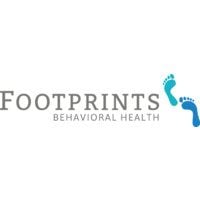

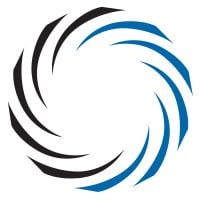
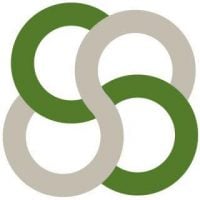
The facility name, logo and brand are the property and registered trademarks of California Diversion Programs, and are being used for identification and informational purposes only. Use of these names, logos and brands shall not imply endorsement. RehabNow.org is not affiliated with or sponsored by California Diversion Programs.

